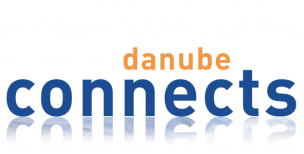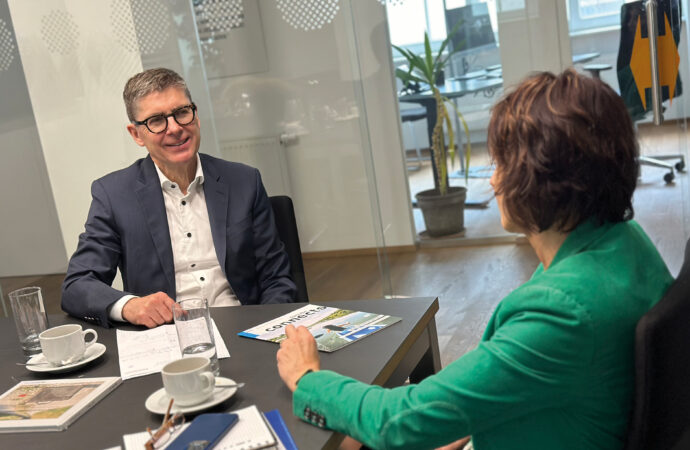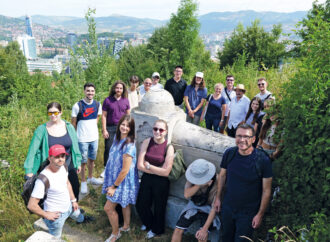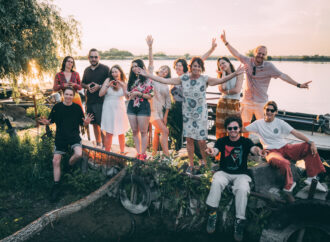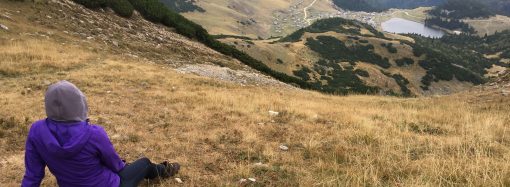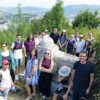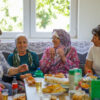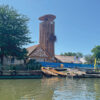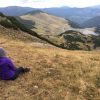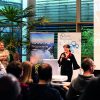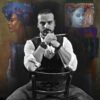Baden-Württemberg has always cultivated diverse relationships in the Danube region. The Baden-Württemberg Foundation plays a key role in this. With its “Perspective Danube” programme, it primarily supports the development of civil society and provides funding for educational, cultural and youth projects, among other things. Dr Andreas Weber, who has been responsible for the “Perspective Danube”
Baden-Württemberg has always cultivated diverse relationships in the Danube region. The Baden-Württemberg Foundation plays a key role in this. With its “Perspective Danube” programme, it primarily supports the development of civil society and provides funding for educational, cultural and youth projects, among other things. Dr Andreas Weber, who has been responsible for the “Perspective Danube” programme since 2012, takes stock in an interview with danube connects editor Sabine Geller.
How did the Perspektive Donau programme come about and what are its objectives?
The Perspective Danube programme goes back to a tradition of the Baden Württemberg Foundation, which has implemented projects in the Danube region from the very beginning. In the early years, it was mainly aid transports. In 2012, I took over the programme, it was incorporated into the Education department and, as with all other programmes, calls for proposals were issued. The Perspective Danube programme focuses on culture, civil society and education.
Did the EU Strategy for the Danube Region encourage you to continue this programme?
The Danube Region Strategy was launched in parallel in 2011 and it was always said that a macro-regional strategy would be created, but without additional funding. The projects that we had previously supported formed a good basis for further developing this programme. The term “perspective” was deliberately introduced in order to look far into the future. With a group of experts, it was also possible to decide more competitively which projects were suitable for the programme.
If you look at it today after more than ten years, we can justifiably say: “Yes, we have succeeded in building a strong and sustainable network.”
Which networks have emerged from your programmes?
The network consists of many small networks, for example the Danube Youth Network with Stefan Barth (Agapedia). Others are active in the field of youth art or are intergenerational, such as the network promoted by Carmen Stadelhofer (ILEU).
We also endeavoured to organise events such as the Donaufest Ulm/Neu-Ulm in order to connect the players in the network. We were very successful in this because we worked in a good partnership with the Baden-Württemberg State Ministry.
These networks helped us a lot after Russia’s invasion of Ukraine. Well-functioning structures and contacts were utilised by the state of Baden-Württemberg and State Secretary Florian Hassler as the state’s representative to the EU when considering where and how we could provide support in Ukraine.
What are the priorities for the future or what else would you like to see?
For the future, I hope that the networks will continue to develop and that the positive momentum that was noticeable at the civil society meeting at the Ministry of State in January 2024 will prevail against the somewhat depressing zeitgeist.
The Baden-Württemberg Stiftung will continue to help with regional priorities, including in countries that are not yet EU members but are part of the Danube Region Strategy. I think it would be good to make a difference there.
The Perspective Danube proved its worth during the pandemic because we were able to continue many programmes and projects online during the lockdown thanks to good structures, including technical ones, and a common will. One example is Carmen Stadelhofer’s network – she started an initiative (DANET) at the beginning of the lockdown, which still brings generations from the Danube countries together on a regular basis, which is exemplary. We have many youth and nature conservation projects, but also projects at mothers’ centres. In my view, this breadth is also our strength.
The situation of civil society has become very difficult in some countries, especially if you look at Serbia and Hungary. Freedom of expression is also coming under pressure. How can civil society be strengthened there?
We definitely need to keep working on strengthening civil society, because it’s a long road to building a civil society and the traditional gap between West and East still exists. The further west you go in Europe, the more organised civil society is. And the further east you go, the less organised it is.
That’s why the youth projects and the study opportunities at Andrássy University are of course very important for young people and shape them.
Are youth in the Danube region, climate change and the environment important topics for you in the Perspective Danube programme? Have there been any outstanding projects in this regard? It makes sense to take up the Danube as a theme, as a connecting lifeline that is emotionally important for many people. Water is an important element that ultimately feeds the people in the Danube region and used to be important as a transport route.
The campaign by professor Andreas Fath, who swam the whole length of the Danube, is of course a highlight. We also had the Danube Nature Guides and various other projects focussing on the environment along the Danube, youth encounters with specific nature-related projects. These projects help to ensure that young people do not migrate and instead take care of their own living space.
The topic of environmental protection is indeed a focal point. We only have one intergenerational project, but many cultural and art projects or Roma projects, for example, and they have existed for over ten years. The number of nature conservation projects has increased significantly in recent years, which can only be seen as a positive development.
How important is it to the BW Foundation to improve the living conditions of minorities such as the Sinti and Roma?
This is an issue for Europe as a whole and we are seeing the rise of racist reflexes relatively quickly.
The level of education is simply very low and for me, this is not a question of integrating a population group, but of social inequality, which starts with such basic needs as nutrition. Mr Zell’s commitment with the BuKi Haus is a good example of this. Despite numerous frustrations, he continues to campaign for children to be given something to eat so that they can learn and read in the first place.
With projects like this, we can set the tone in various places and bring about change – whether on a smaller or sometimes larger scale.
In September 2023, you received the Grand Medal of Andrássy University in Budapest. Congratulations on this. Why is this collaboration with Andrássy University important for Baden-Württemberg?
The Baden-Württemberg Foundation contributed to the establishment of the university back in 2002. Baden-Würt-temberg, Bavaria, Austria and Hungary agreed to strengthen the traditional connection in the Danube region as a southern rail in Germany, to provide academic support and to take up the tradition of a German-speaking university in Budapest. We have supported this financially for many years, supported student exchanges and financed scholarships.
We have organised conferences and kept the exchange alive, resulting in a lively relationship. European topics, research on the Danube region and the role of civil society are at the centre of education there.
“Without the Perspektive Danube
programme, the development of
the Danube Youth Network
would not have been possible.”
Stefan Barth, Agapedia
Andrássy University’s annual opening ceremony
“Helping people to help themselves,
that’s what we were able to achieve in small for Roma women.”
Monika Heitmann,
Liebenau Foundation
Award of the Andrássy Grand Medal
Aid to Ukraine has also been included in your programme since the beginning of the war of aggression. Are there enough applications in this area or could the country be supported even better in the long term with meaningful projects?
We currently have over 20 projects and more are being added all the time. Ukraine has always been represented in the Danube Region Strategy with four regions. With regard to emergency aid in Ukraine, we have now decided that it doesn’t matter where we provide support – whether in Ukraine or here on the spot. If the aim is to alleviate the consequences of war, at least for children and women, then that is what we want to do.
Because we were already represented locally through our networks, we were able to support Amica in Mariupol, for example. This organisation helps women affected and traumatised by violence. I am very satisfied with what we have been able to do and I hope that we can continue to work on these important projects with the support of the Supervisory Board.
What conclusions do you draw from these years of work and how important is it to continue the programme?
The programme must be continued and is important. We can look back on ten years of successful work and be satisfied with the structure we have built up.
With your magazine, you ensure that these ideas are communicated. You therefore also have an important function, namely that those involved realise that they are making things happen together here, even if the topics are different. The solidarity among the Danube countries is important.
You will be retiring in the foreseeable future. Can you tell us anything else about yourself or your plans for the future? Do you still have plans to travel to the Danube region, for example?
I am a child of the Rhine-Neckar region. Just as the Danube is an emotional bond for others, so is the Rhine for me. Rivers are points of reference, a place that has always been there and that you go to.
The first thing I’m going to do in March is go skiing in the Engadin. The Inn, an important river that supplies the Danube with water, has its source there.
I have been to Budapest quite often, and to Bosnia and Herzegovina in 2019.
I was able to experience many things there that I only knew in theory. On the one hand, I experienced the social divisions, but on the other, I also got to know the very strong historical culture. You can feel it in Sarajevo. You learn from stories there that people have actually always lived together well with different religions. Nowadays, it’s sad that students are quite strictly segregated according to ethnic groups there. I hope that this will be overcome at some point. After all, we are all human beings and we should treat each other as such.
Interview by
Sabine Geller, Ulm
